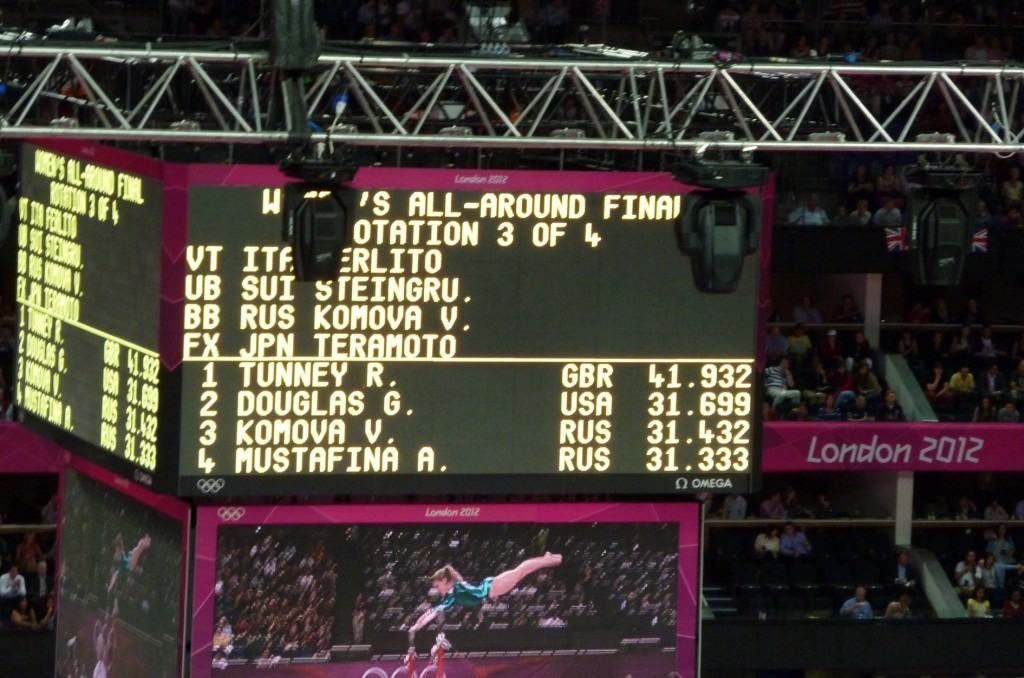We’re having a lot of fun in Britian with the 2012 Olympics, and especially here in London. That’s rather wonderful in its own right – but as usual people are using the occasion to push forward their political agendas. And the obvious agenda to push is funding for sports, and the promotion of sport in schools. Any number of half-baked ideas are being floated, including by our Prime Minister, David Cameron. In particular Mr Cameron thinks that the focus that his school (Eton) had on team sports would be a good idea for everybody. Compulsory competive school sports would be just thing, apparently. But my scepticism comes from the fact that I endured a private education system almost as privileged as Mr Cameron’s – and I don’t think its emphasis on compulsory sport did me any good at all.
One of the many problems with competitive sports is that they are almost by definition elitist. Prestige comes from winning. Winning only goes to those with certain mental and physical aptitudes. If you don’t fit, and almost by definition most don’t, the whole thing is painful. You just become fodder for other people to show off against. This was pretty much how things were for me at my prep school in Ealing. I used to hate “Games”. I still have an affection for pouring rain since this meant that Games would be cancelled, and I would be spared the humiliation and risk of getting hurt.
It is at this point my story takes an unusual turn. In 1969 my father was seconded to Jamaica for a couple of years, and I went to school in Kingston. This was another privileged institution (The Priory School – I think it’s still going strong), with a very strong American slant. There was no compulsory sport, and I was very happy about that. I joined in the odd game of football on a voluntary basis, though not very successfully. But my parents enrolled me in a swimming club, not linked to tschool at all – one that trained me to a competitive standard, including (very unsuccessful) participation in the Jamaican junior swimming championships. As something outside the hateful apparatus of compulsory school sport, and with a supportive and encouraging coach (how unlike school sports!), I was happy to go along with this. Returning home and back to one last year in my prep school, I continued to keep up swimming, at Ealing Swimming Club. This made me very fit. I astonished my school teachers by picking up the gold medal for the 440 yards race at the school sports day, along with another gold for the relay team (taking the final leg) and a mere bronze in the 100 yards. It was less of a surprise when I picked up the Victor Ludorum at the school’s swimming competition.
I then moved on to my secondary school, the “public” school of St Paul’s. I did not find Games any more agreeable here, with its major emphasis on rugby. Meanwhile at the swimming club I worked my way up the various grades until I hit the stream where people at the top were in Commonwealth Games contention. And I was firmly stuck at the bottom, in spite of quite mind-numbing and exhausting swimming sessions. I felt I had better things to do with my time (like assembling Airfix kits) and gave up. There was to be no more sporting glory for me!
This has left me deeply suspicious of compulsory school sports. Coaching resources are limited. It is natural that they should concentrate on the most promising cases. If you are not judged (rightly or wrongly) to be in that category you are going to have a miserable time, and won’t get anything out of it more than a fear and distaste for participating in sport. And most of the people who succeeded in sports at school won’t have much idea what I’m talking about.
If the alleged health benefits of sport are to be realised, then it needs to be voluntary and enjoyable. There’s nothing wrong with competive sports – and anybody that wants to take part, or even try it out, should have the opportunity. I would back funding for that – though let’s recognise that this doesn’t have to be schools, and is often better outside. But making it compusory is a blind alley.
And there’s something else. If sport is voluntary then those running it have some incentive to make sure that people are enjoying it – instead often being nasty bullies. Things may be better nowadays, but when I was at school bullying in team sports was rife at schools – and this carried through to the professional game. We don’t want to go back to those days.
